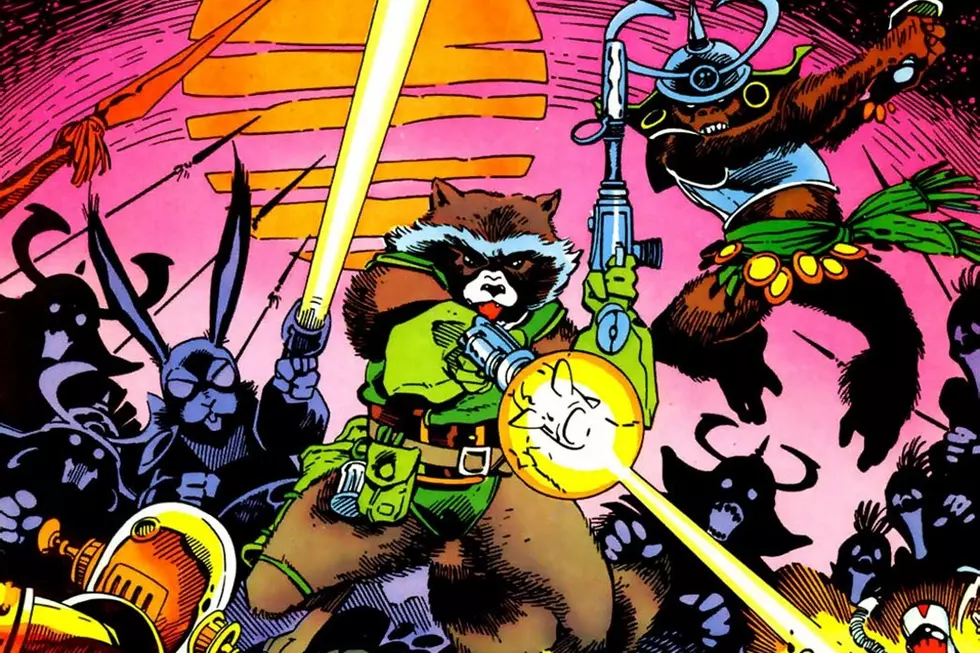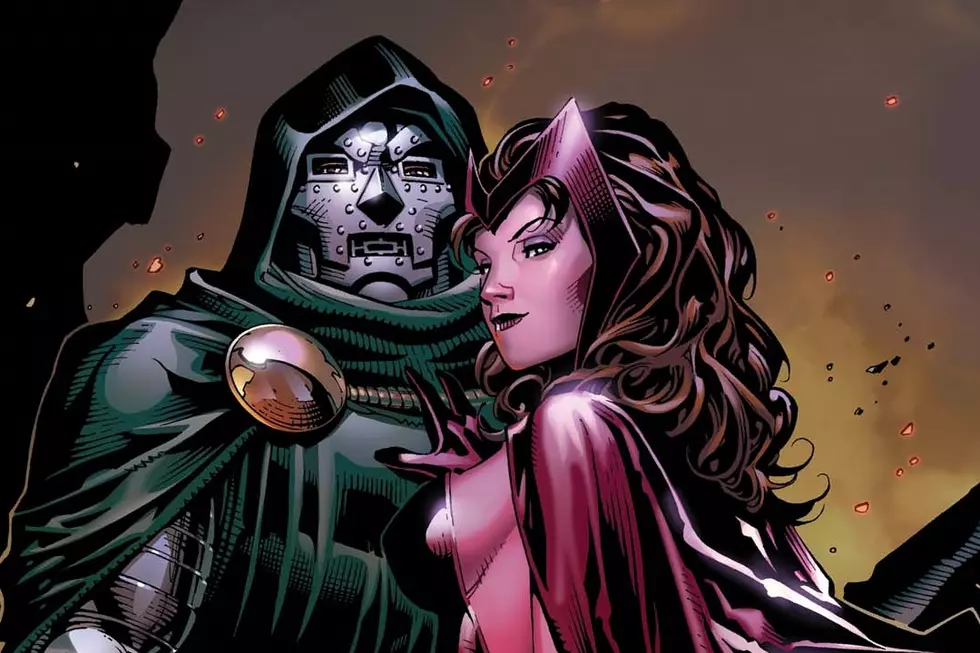
Charity Shouldn’t Have To Be The Only Option For Comic Creators In Need Of Medical Care
If you weren’t aware of it before the past few weeks, even a passing interest in the recent Internet comics community likely informed you of the medical-expense-related plight a high-profile pair of comic book creators have been experiencing . First, there was Stan Sakai, the creator of Usagi Yojimbo, in dire straits because of an extended hospital stay for his wife, Sharon. Then there’s Bill Mantlo, the co-creator of Rocket Raccoon, who was severely injured in a skating accident 22 years ago and has required full-time care ever since. (He’s been under care for two decades, but Rocket's appearance in the forthcoming Guardians of the Galaxy movie has brought him back into the public eye.)
Both of these men have had to turn to donations from fans and colleagues to help with their considerable expenses, and those people have made admirable efforts to help these creative artists whose work has brightened their lives. Generosity is a good thing. But it shouldn’t have to be this way.
Look on the website of the Hero Initiative, the charitable organization that helps comics creators who've hit hard times, and you’ll see a few more names of people who have worked in comics but haven’t had the resources to pay for medical care on their own: Steve Gerber, Josh Medors, Gene Colan, Ralph Reese, Tom Ziuko, Russ Heath, Mike Grell, Roger Slifer, Peter David, Robert Washington. That’s just scratching the surface.
The Hero Initiative does important work that provides much-needed assistance, just as Dark Horse and the Cartoon Art Professional Society have done for Sakai with a massive auction of Usagi artwork created by a host of Sakai's colleagues. But let’s be 100 percent real here: Numerous charities for productive artists who've worked steadily for decades in a lucrative medium? That seems outright absurd. Your charity dollars can go to child in a third-world country who is starving, or it can go to one of, say, Daredevil’s defining artists. That our industry is such that this is even a choice we have to make is just nuts. It's shameful. And comics fans have happily ignored it for a long time. It's getting to the point that's not possible anymore.
This is probably where I should note that this isn’t a problem that’s only endemic to comics. Any profession in which work-for-hire freelance jobs are the norm is one where health insurance isn’t going to be part of the package. Which means that workers in those professions have to buy insurance on the open market. Which means they often end up with cheap coverage with high deductibles and big problems, or no coverage at all. Even under the new health care law in the U.S., many citizens have indicated they'll just take the tax hit that comes with opting out of mandatory care than bothering to pay a monthly premium to protect themselves, and it stands to reason many of those people are freelance workers like comic book professionals.
That’s how you end up with someone like Peter David, a multiple-time New York Times bestselling author, asking on his website for financial help for his medical care after his stroke last year. And he had health insurance, too.
I don’t know how to fix this, and I’m not going to pretend I have a solution. Health care in the United States is a puzzle box that reveals a more-complex layer underneath the one you just thought you solved. It isn’t even as simple as comic book publishers making creators full-time employees. That strips a lot of the freedom freelancers value away from them (though there was a trend there, for a while, of creators signing exclusive agreements; one of the conditions for exclusivity should be health coverage).
There are seemingly obvious solutions that seem to not be viable. Unionization, for example, which would mean more leverage to demand benefits from employers. But there is something akin to a comics creators' union, the Comics Creators Guild, already. It's been around since the 1970s, and while it has certainly done some good, its clout is limited. The idea of a union doesn't get very far in an industry where there are hundreds, if not thousands, of fans more than willing to take those freelance jobs as scabs at a moment's notice, and just for the privilege of working on their favorite characters. Higher freelance wages could mean more resources for creators to buy health insurance on the open market, but that's still a catch-as-catch-can situation. There are no guarantees and there's no retirement. Maybe comics creators could get together and join a co-op.
But I do know this: Charity is not a sustainable model for long-term healthcare for comic book creators. Guardians of the Galaxy will come and go in theaters, people will move on to another cause, and Bill Mantlo will still be in that care facility, still needing what he’s been needing for the last 22 years.
Something has to change. It seems altogether insurmountable, but the comics community should at least begin dialoguing about how unacceptable it is for some of the most accomplished people who worked in the industry have had to, essentially, beg for money when a health crisis arises, or, for that matter, when a disaster that destroys a home; or when they're the victim of theft; or when some other catastrophe strikes.
For now, we can keep donating, but it’s worth talking about how we can build a world in which the Hero Initiative doesn’t have to carry the load.
The Stan Sakai benefit auction begins March 6, and we will have more details as the event nears. Donations can be made directly to Bill Mantlo's care via this link.
More From ComicsAlliance

![The Industry’s Best Artists Sketch The Heroes In A Half Shell For ‘Teenage Mutant Ninja Turtles: 100 Project’ [Preview]](http://townsquare.media/site/622/files/2017/03/TMNT_100Project_TPB-pr-11.png?w=980&q=75)







